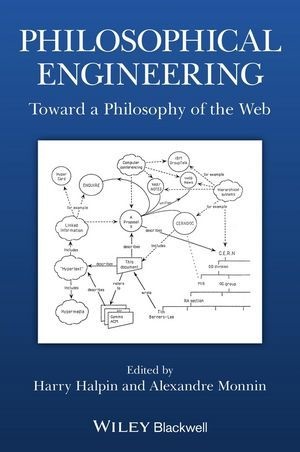Ulteriori informazioni
This is the first interdisciplinary exploration of the philosophical foundations of the Web, a new area of inquiry that has important implications across a range of domains.
* Contains twelve essays that bridge the fields of philosophy, cognitive science, and phenomenology
* Tackles questions such as the impact of Google on intelligence and epistemology, the philosophical status of digital objects, ethics on the Web, semantic and ontological changes caused by the Web, and the potential of the Web to serve as a genuine cognitive extension
* Brings together insightful new scholarship from well-known analytic and continental philosophers, such as Andy Clark and Bernard Stiegler, as well as rising scholars in "digital native" philosophy and engineering
* Includes an interview with Tim Berners-Lee, the inventor of the Web
Sommario
Notes on Contributors vii
1 Toward a Philosophy of the Web: Foundations and Open Problems
ALEXANDRE MONNIN AND HARRY HALPIN 1
2 Philosophy of the Web: Representation, Enaction, Collective Intelligence
HARRY HALPIN, ANDY CLARK, AND MICHAEL WHEELER 21
3 The Web as Ontology: Web Architecture Between REST, Resources, and Rules
ALEXANDRE MONNIN 31
4 What Is a Digital Object?
YUK HUI 52
5 Web Ontologies as Renewal of Classical Philosophical Ontology
PIERRE LIVET 68
6 Being, Space, and Time on the Web
MICHALIS VAFOPOULOS 77
7 Evaluating Google as an Epistemic Tool
THOMAS W. SIMPSON 97
8 The Web-Extended Mind
PAUL R. SMART 116
9 Given the Web, What Is Intelligence, Really?
SELMER BRINGSJORD AND NAVEEN SUNDAR GOVINDARAJULU 134
10 The Web as a Tool for Proving
PETROS STEFANEAS AND IOANNIS M. VANDOULAKIS 149
11 Virtual Worlds and Their Challenge to Philosophy: Understanding the "Intravirtual" and the "Extravirtual"
JOHNNY HARTZ SØRAKER 168
12 Interview with Tim Berners-Lee
HARRY HALPIN AND ALEXANDRE MONNIN 181
13 Afterword: Web Philosophy
BERNARD STIEGLER 187
Index 199
Info autore
Harry Halpin is Postdoctoral Associate with the World Wide Web Consortium at the Massachusetts Institute of Technology, and a Visiting Researcher at the Institut de Recherche et d'Innovation du Centre Pompidou, France, as part of a European Commission-funded Marie Curie PHILOWEB project. His research interests range from the complex dynamics of tagging to the philosophical foundations of Anonymous. He is the author of
Social Semantics: The Search for Meaning on the Web (2012), which analyzes the impact of the Web on theories of semantics.
Alexandre Monnin is Head of Web and Metadata Research at the Institut de Recherche et d'Innovation du Centre Pompidou, France, and Associate Researcher at INRIA and CNAM. He has published research on tagging, the architecture of the Web, and its importance for ontology. In 2010, he organized the first interdisciplinary PhiloWeb conference and in 2012 he held the first international seminar on the topic, both at the Sorbonne. He co-initiated SemanticPedia, the semantic platform for Wikimedia projects in French.
Riassunto
Philosophical Engineering represents the first interdisciplinary exploration of the philosophical foundations of the Web, a new area of inquiry with important implications across a range of domains. The twelve essays here bridge the fields of philosophy, cognitive science, and phenomenology.
Relazione
'A surprising number of those responsible for the technical standards of the Web have a background in Philosophy. This eclectic collection brings together diverse perspectives on how the big questions of philosophy relate to the engineered realities of the Web. How do philosophical debates about representation, semantics and reference apply to Web documents and identifiers? Could the all-pervading presence of the Web even be changing how we think?'
--Dan Brickley, Google
'This is a collection of essays that contributes to our understanding of the philosophical issues raised by the Web. The editors are to be congratulated for their constructionist methodology ("philosophical engineering") and for their "denaturalising ontology" program. Contemporary philosophy needs more of both.'
--Luciano Floridi, Professor of Philosophy and Ethics of Information Oxford Internet Institute, University of Oxford

